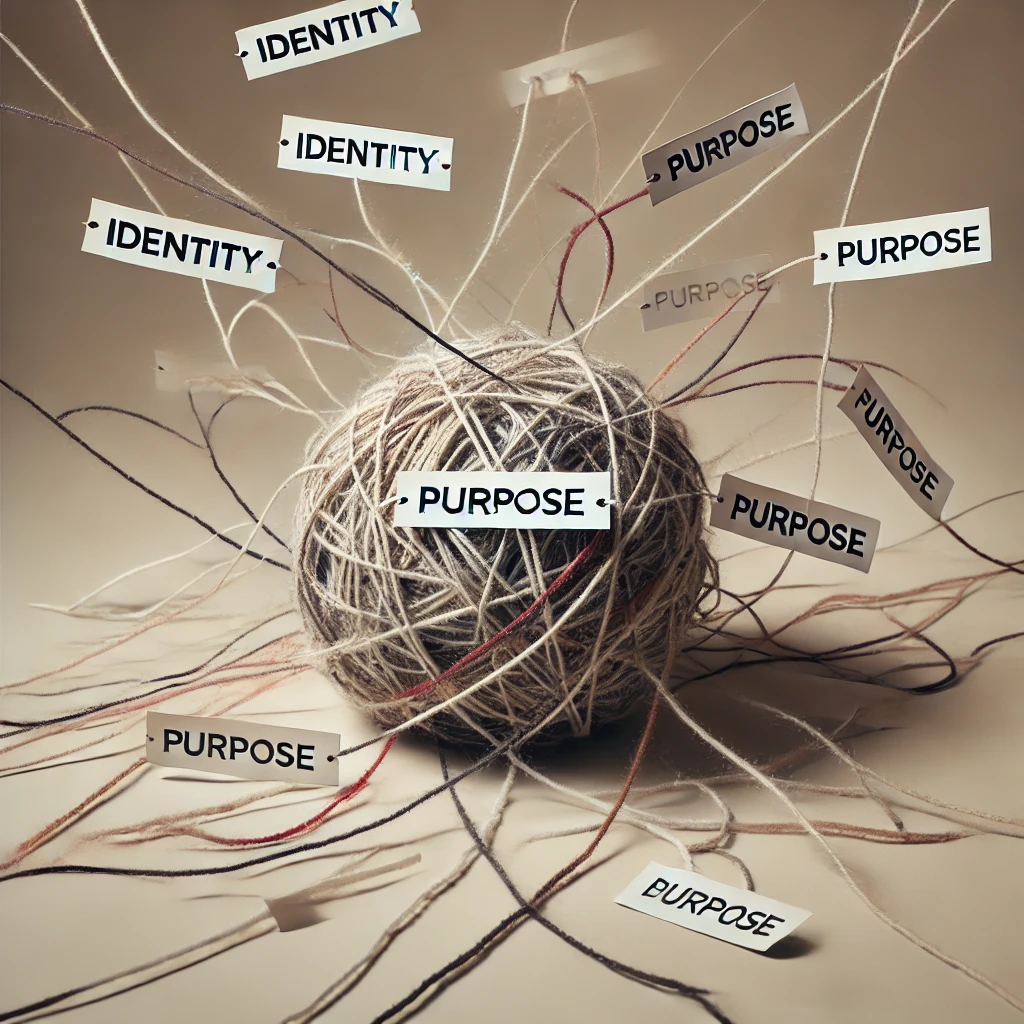Who am I?
A number of years ago, lawmakers in Michigan tried to pass a law called HB 4474, which tried to make it a hate crime to make someone feel “terrorized, threatened, or frightened with words”, including such actions as misgendering someone. Violators would be subject to 5 years in prison and up to $10,000 fine. In Australia, a law was passed that you are not allowed to counsel your children against their preferred gender. If your boy feels like they want to be a girl, you are not allowed to contradict that, even in your own home! in a world where nearly 1 in 5 people aged 13-17 today identify as transgender, that has huge ramifications, both for society as a whole and specifically for churches.
Gender is now seen as completely fluid. Some people provide a list of 72 different genders, while others divide identity into three basic umbrellas—male, female, and nonbinary—each with infinite variations in between. A growing trend is to identify as a furry, where someone can claim to be a cat, dog, or even a squirrel. I recently watched a clip of high school students frustrated by their classmates mewling, scratching, and refusing to speak in English during class. They pleaded with their principal to ban furry behavior in the school, saying, “You can do anything you want at home, but keep it out of school.”
The question is: how in the world did we get here?
Our culture insists that identity is something we create and define ourselves. Whether it’s gender, sexuality, or even how we perceive ourselves in relation to others, people are being told that their identity is entirely self-determined. While this might seem like freedom, it’s leading to deeper confusion, anxiety, and disorientation for so many.
So, how do we make sense of this? That’s what we’ll explore together today in this first part of a two-part series. In this session, we’re going to unpack what identity really means, why our culture has become so obsessed with redefining it, and how we arrived at this point in history. Then, we’ll turn to the Bible, which gives us a clear, stable understanding of identity. We’ll see that our identity is not something we create, but something God gives us, rooted in His design and purposes for us. And ultimately, we’ll discover how our identity is transformed and secured in Christ.
Next time, we’ll dive into practical ways to talk about gender and identity with both confused Christians and unbelieving coworkers. But today, we begin by laying the foundation: understanding identity in light of God’s truth and how this differs from the confusion of our cultural moment. Let’s get started.
Before we jump in, I want to give you 5 questions, that answers of which provide a lense through which we interpret and understand issues of identity.
Ontological – What Am I?
What is the essence of my being? Am I simply material or is there an immaterial, spiritual component. This would also encompass the physical manifestation of your personhood, i.e. Your body. Your biological component of you is neither determinative, nor is it irrelevant.
Psychological (Who am I?)
This involves your own sense of self. You are the same “person” (in the technical sense) across time, even as you grow and change. This is influenced by the unique expressions of your heart. As we’ve talked about in the past, the heart operates in three realms, or has three functions. Thought, Feelings, and Choices. Every person has a
Relational – Whose Am I?
Our identity is tied to how we relate to others. We are intrinsically communal beings. I am a father, a husband, an employee, a boss, a volunteer, a counselor, a priest. Additionally, how the community sees me often influences how I see myself.
I once counseled an individual who went to jail for possession of child pornography. They went to jail and now are a registered sex offender, and on every background check that gets run by employers, it will show “sexual exploitation of a minor”. Now, I believe this individual had become a genuine believer and has truly repented. They have new, holy desires and have become members of a local church. But it’s still tough to find employment. Their past affects how people view them and often how they view themselves.
Moral and Ethical – What Should I Be?
Does my life have purpose? Who should I be when I grow up? Does it even matter?
Humans are uniquely gifted to project into the future. We can choose to do certain things now that affect that future. These moral and ethical questions shape who I strive to become.
Narrative – What Is My Story?

Story is extremely powerful. We get most of the Bible in story format, in one form or another. This typically deals with where I came from, where am I going, and what is the meaning of it all? We tell ourselves stories all the time.
These questions provide a helpful grid through which we can start to tease out what we think about who we are. Thinking clearly about these issues helps us see the impact of individual and societal beliefs on the way we answer fundamental questions about who we are, who we belong to, and our purpose. While our culture tells us that identity is a self-made construct, the Bible offers a different story—one of purpose, security, and divine design.
In the next part of this series, we’ll dive into some philosophical ideas that led us to where we are. Understanding how we got to this point in our collective, cultural imagination helps us discern the problems inherent in this philosophical framework and how can respond biblically. Whether you’re navigating these questions for yourself, mentoring someone on their own journey, or simply seeking to understand the complexities of our times, we invite you to continue with us as we build on this foundation and look forward to what’s next.
